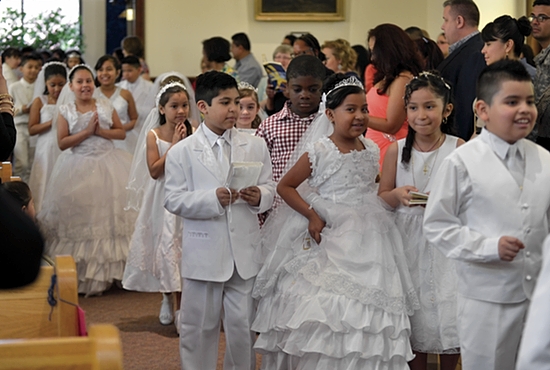In preparation for my son’s first holy Communion this spring, we naturally spent a lot of time talking about grace. The mysterious workings of grace in our lives — or even what grace is — were fodder for interesting conversations between this father and his then-almost-7-year-old.
Despite having a few more decades pondering the topic than he, invariably I’d learn just as much from our reflections — particularly as I had to think through concepts anew and make them understandable in my attempts to satisfy his precociously inquisitive mind.
We’d talk about how the sacraments were necessary for salvation and gave us the grace we needed to live like Christ. We’d talk about how God loves us so much he gives us grace as the supernatural help we need to persevere in our call to be holy. We’d talk about how grace, as the Catechism puts it, “is a participation in the life of God” (No. 1997).
I could see in our lessons and my son’s regular interrogations on the subject — even in the grocery store line or on the kneeler after I received holy Communion — that his eyes were opening to supernatural realities. He was particularly interested in the practical — always wanting to know how Eucharistic grace would impact him, how it would show up in his life, how it would make his life different. While the answers to questions like that were only answerable in God’s way and in God’s time, I could speak to him about the goal of sacramental grace of allowing Christ to live in us.
I’d talk about how in the Eucharist, Christ comes to dwell in us, how he feeds us with his body and blood so that we might be like him. I’d mention how the Eucharist is a sacrament that could be received daily. It is a supernatural nourishment for us to overcome our daily sins, to persevere daily in virtue, and to allow Christ to increase in our mind, in our will and in our hearts a little bit more each day.
This is an excerpt from OSV News’ monthly “The Eucharistic Word” column.
